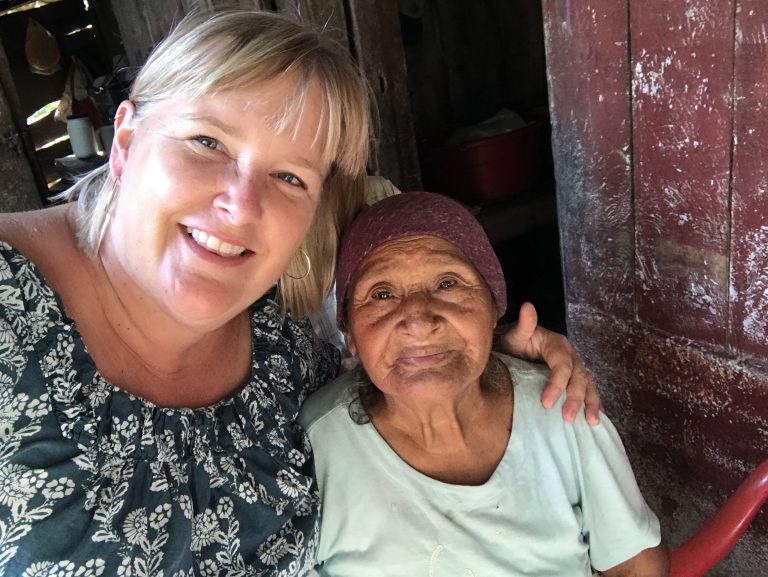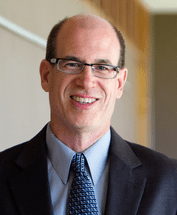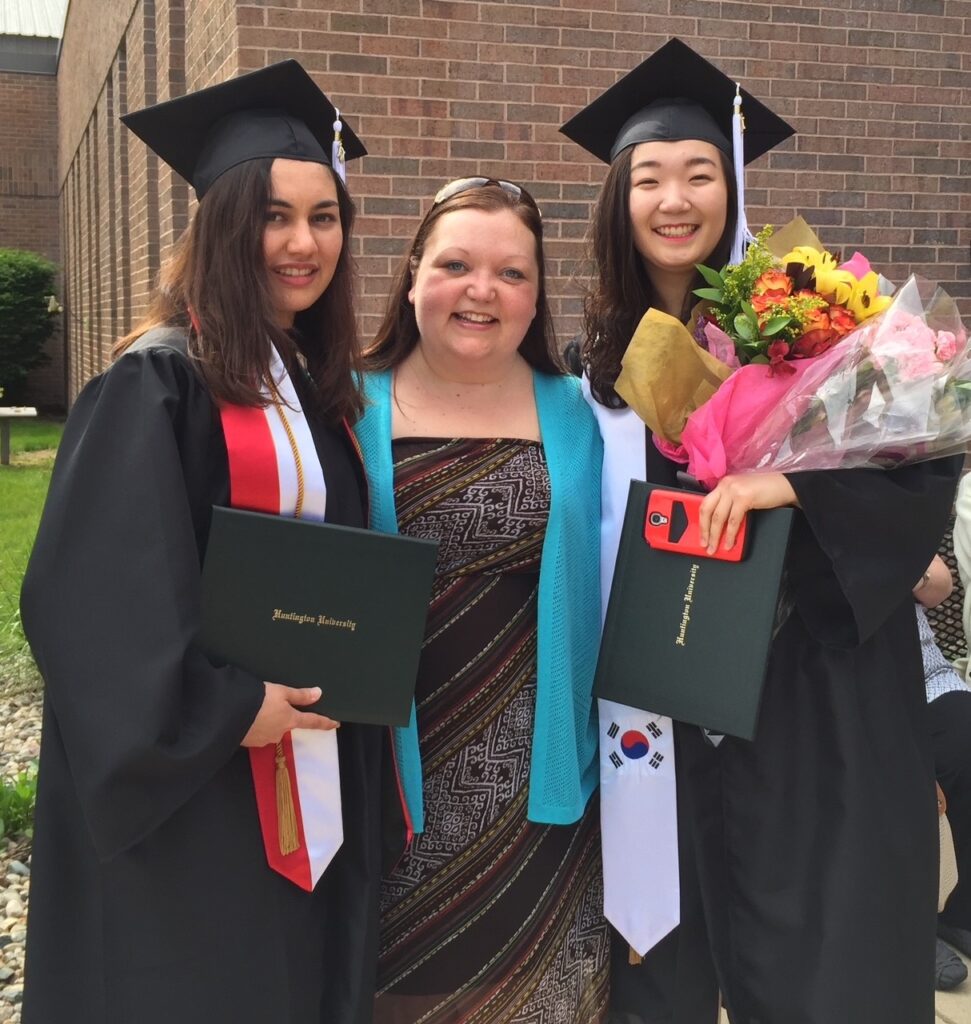Natalie Goff, 50, has lived in Nicaragua teaching English as a Christian worker for eight years now with no immediate plan to leave.
When the man she was dating told her in 2013 that he wanted to build water purification systems in Nicaragua with the intent to get to know people and share God’s word, she had to do some serious contemplating. Should she keep the relationship going, marry him and move to Central America, or break up? She knew the right thing for her was to go with him to Nicaragua.
“I enjoy living in America. I enjoy the comforts of living in America. I enjoy a hot shower, not having bugs,” she says, “but it’s purposeful for me living here. For me, it is a spiritual thing, definitely that it’s an opportunity to live out our faith.”
Goff has always been a teacher, so teaching English was not a 180-degree change. She has also always been intentional in using her teaching skills as part of her ministry.
Ironically, she never wanted to be a teacher, but teaching kept finding her. Her career started in Oregon as an elementary school teacher. After a few years there, she moved to Germany and spent five years as a missionary teaching junior high school English at a private international Christian school. She came back to Oregon ready to continue serving and teaching. She received her master’s degree in curriculum and instruction and moved into different leadership roles to help train teachers.
When the opportunity to go to Nicaragua presented itself, it felt right. She married, and as she and her husband found opportunities to serve in the different communities in Nicaragua, her teaching skills proved to be well aligned for the purpose of this mission.

“It just started with some little girls in our neighborhood who I think were more interested in being with the white lady than they necessarily were interested in learning English, but, you know, we started with real basics, and it really grew.”
Last year, she became TESOL certified and accepted a job teaching English at Kaiser University’s Latin American campus in San Marcos, Nicaragua.
English teaching found her and gave her a space where she could contribute in ways that were unique to her skill set and in a way that the community was asking for. For Goff, this was an answer to the question, “What can I offer?”
Common to many missionary experiences, Goff and her husband’s work is mostly self-funded. Goff’s university job salary is supplemented by contributions from friends and family and their church community in Oregon.
Funding is one of the main differences between missionary-service English teachers and wanderlust-seeking English teachers. Missionary-service teachers’ funds are often contributed by the church community, and therefore these teachers are held accountable to that church community for what is accomplished — and not necessarily to a school nor government agency.
The traditional metrics for determining if an English language teacher is doing good for their community’s financial donations are numbers such as how many conversions they’ve done, how many churches have been built and how many baptisms or believers they have been able to reach through missionary work.
Goff says, “I think that’s gotten easier probably in the last 10 years or so. Whereas in the eighties, nineties, early two-thousands, it was more about numbers. I think our world has become more interested in stories. And so, by sharing stories about what the experience has been helping someone with their house or something, we try to thank you for your support that we’re able to do that.”
With Goff’s work at the university, she is accountable to the institution’s standards and code of ethics, but to keep the church community aware of her efforts and to keep donations coming in for other projects, she and her husband share a monthly newsletter logging different events, discussing lessons learned and highlighting the people they were able to serve.
“It can be easy to do that because people at home kind of want the numbers on that. It’s really about the people and changing hearts,” Goff says. “Some of what typically happens is people go home and they’ll say, we did this, we fed this many people. This many people became Christians and that kind of stuff. And we really have held back in that area. When we’ve tried to share what’s happening here, we really try to keep it very personal with people like here … ‘Let me tell you about Carlos.’ Then it’s about stories.”
Goff is part of a new generation of missionaries who are no longer counting the number of believers they have accrued nor the number of baptisms or conversions happening under their watch. This shift represents a stronger focus on serving individuals by providing for their basic needs, like learning English, versus tallying up numbers to impress a church community.
Historically, that push for numbers motivated missionaries to rely on questionable ethics to reach their quota, even if that meant manipulating or misleading English learners into their classroom only to learn about the Bible.
Alastair Pennycook, a researcher from the University of Technology, Sydney, Australia, has contributed to the very early days of the research surrounding missionary work and English teaching. His 2003 research with Sophie Coutand-Marin discusses the imperialistic traditions of colonization that English teaching often perpetuates, especially when religion is involved. They say that the power dynamics are what create the most harm and confusion. Their paper tells a story of missionaries choosing people from a crowd that seem most likely to convert to their religion and then inviting them to learn English with the expectation that the students will also agree to learn about their religion. These tactics were motivated by missionaries’ need to meet quotas in order to continue their work.
This new shift away from numbers is understood only through hearsay, as there is very little research or documentation on missionaries who teach English abroad outside of Pennycook’s scholarship. In fact, there is very little data on missionary work in general. It is a largely untapped area of study, with complications and nuance depending not only on the church community that is sending out the missionary but also on the requirements of the country receiving missionaries, as well as the intentions of the missionaries themselves. There is no standard practice nor are there any regulations across faith traditions.
Is Everyone on the Same Page? Aligning Goals and Objectives
Dr. Darin Mather, associate dean for the School of Online Studies at Crown College, with a background in sociology and program evaluation, has worked for missions and a community development organization for around 20 years. He started out in the ministry track, has a seminary degree, and then got his Ph.D. in sociology with a focus on religion and development, asking the question, “How do faith-based groups do development work?”
Dr. Mather explains, “From a program evaluation perspective, as a program, you have to be very conscious about your goals and your objectives and outcomes. The first thing is people need to explicitly say what they are because there are explicit outcomes and then implicit outcomes.”

Being explicit might look like a missionary writing out or delivering a list of goals and expected outcomes to their students, donors and supporters. This ensures that the students and all those invested in this service are on the same page.
Then, the missionary would also need to practice some introspection. “Missionaries need to say, ‘Okay, do we feel good about this from an ethical perspective?’ And then once they lay out those outcomes, and by meeting those outcomes, whether it be an English teaching outcome, to be the number of students that come through or the progress they make in their English, some people will want to measure conversions and different things like that.”
This is where goals and training come in. The days of sending missionaries out into the world with absolutely no skill set to serve others are hopefully disappearing, but missionaries need to be intentional not only with their goals but with their own training.
Because mission practices vary so greatly, it is helpful to lay out some common practices across traditions.
The first is funding. Missions are usually self-funded or collectively funded by friends, family and the church community. There are options to use different 501(c)(3)s, or nonprofits, that raise money for missionaries and then funnel donations to the different Christian servants, but those are few and far between.
The second note is regarding which countries missionaries are most likely to serve. There are certain countries that do not allow proselytizing, like Russia, certain parts of China and many countries in the Middle East. When missionaries enter these countries, they do it with the understanding that they are fulfilling a need, like English teaching, that has already been agreed upon by the country. Otherwise, missionaries go anywhere and everywhere.
The last point that is common among all traditions is about who is going on these mission trips. The answer is anyone who feels personally called to this service. This demographic ranges from high schoolers looking to do something different during the summer to retirees.
Teaching English abroad is attractive to many Christians who are interested in finding ways to naturally share their faith because it requires a skill set that is easily attainable, compared to becoming a doctor or a nurse, and it provides a natural way to develop relationships with people outside one’s own community.
For Christians, teaching can often be linked to finding a path to ministry. For the sake of this article and the definition by all interviewed, the word “ministry” simply means service. This service is broad and can be all-encompassing, meaning anything from sharing one’s faith to helping a family move home and never discussing faith. It is about meeting people where they are and meeting their needs.
English instruction as part of one’s ministry is more complicated, however. It requires the Christian servant to know how to teach, not just speak, English; to be culturally sensitive and adaptable to their new community; and to know their beliefs with enough confidence to answer questions about them when they arise.
Teachers throughout the world may be lacking one or two of these components, which is often where ethical questions arise for those pursuing English language teaching (ELT) ministry. A teacher trying to understand when it is and is not appropriate to share their faith, especially when there is no real board of accountability for all the different groups ministering through teaching English, raises ethical questions that academia is trying to address.
Do What You Do ‘With Excellence‘
“Hey, if you’re out on the mission field, and you just happen to fall into teaching English, that’s great. But you need to come back and get certified. … So I think that’s a huge piece: being qualified, doing what you do with excellence.”
Shoshannah Hernandez, director of the Institute for TESOL Studies and associate director for global studies at Huntington University trains future English teachers on how to do this ethically. She focuses her work on making sure her students are trained and certified and that their intentions are transparent to everyone involved.
Right now, about 50% of Hernandez’s TESOL classes are students planning on teaching English as Christian servants, a demographic of students that is consistently increasing in number in her program. The others are either education professionals planning on teaching at local schools or other professionals working on improving their resumes with TESOL certifications.

“Hey, if you’re out on the mission field, and you just happen to fall into teaching English, that’s great. But you need to come back and get certified. … So I think that’s a huge piece: being qualified, doing what you do with excellence.”
According to Hernandez, Dr. Mather, and Goff, missionary work should be all about following the example of Jesus Christ to do good in the world. For Hernandez, she dedicates her education in the name of her faith to ease the burdens of others.
Hernandez never planned on getting involved with mission work, nor did she ever plan on teaching English as part of her own ministry. She is the daughter of a preacher and was planning on living locally and teaching secondary math when her sister introduced the idea of spending the summer in China teaching English with a Christian organization. That summer changed the course of the rest of her life. She returned to China and stayed for four years, got her master’s degree in TESOL and is now dedicated to helping other faith-motivated educators in teaching English ethically and fighting old traditions in missionary work.
These examples are usually perpetrated by untrained teachers who are just picking up an English textbook and deciding to use that as the tool to introduce people to Christianity. When a teacher is trained, on the other hand, they are forced to bend to the certification rules and, if the training is good, they are also confronted by their own stereotypes or unethical behavior. This is why being trained and certified as an English teacher is so important.
“Often the only way a church, especially a new church, can survive in the community is if they have some kind of practical thing that they’re offering the community. So, I’ve seen churches decide, ‘If we want to stay in this community, we’re going to have to start teaching English or doing something practical.’ And I’ve seen instances where that has worked, where the community has kind of welcomed them because they’re now offering this very practical skill: They’re going to have English classes. In other situations, it’s really just a ploy to get people into the church building,” Hernandez says.
In regard to such ploys, she describes these practices as manipulations — efforts by teachers to intentionally sneak evangelicalism into their teaching with a confidence that this is what God is calling them to do. These practices often reflect poorly on the church community and do more harm than good.
“I’ve seen teachers who feel very strongly that ‘This is how God is using me.’ And they’re very intentional about manipulating Bible teaching into their English teaching work.”
She goes on to explain, “I think for most cultures, when a student is in a student-teacher relationship, there’s some obligation, and there’s some respect for that authority. And so, it puts the student in a really bad position where they don’t want to go there, they don’t want to hear that. This person has been identified as their teacher. They’re not able to get out of that situation. Which to me is, is essentially an abusive relationship.”

These examples are usually perpetrated by untrained teachers who are just picking up an English textbook and deciding to use that as the tool to introduce people to Christianity. When a teacher is trained, on the other hand, they are forced to bend to the certification rules and, if the training is good, they are also confronted by their own stereotypes or unethical behavior. This is why being trained and certified as an English teacher is so important.
Hernandez says, “When you are trained, authenticity flows through to the point that you never actually have a hidden agenda, right? So just because I am a Christian teaching English doesn’t mean that I’ll never have a spiritual conversation with my students. Maybe I will, but maybe I won’t. That’s not the goal. The goal is to do my job and to share the love of Christ.”
Teaching with Intent: Issues of Global Awareness and Ethics
“In all of our intercultural things, we try to partner with the people there. So that we’re helping where we can help best. With English there’s something that people in the world want,” Zell says.
Dr. Alexander Zell, director of the Graduate School of Ministry, Christian Ministries and Global Leadership at Crown College, partnered with Bridge in creating an entire course on how Christian servants can better teach English while being more globally aware and ethical. His course covers three different aspects under the umbrella of helping teachers act more intentionally in their impact.
- How to adapt the teacher’s ways to their students’ ways. It’s not the other way around.
- How teachers can maintain their own spirituality while living as a minority in another country, without religious community support systems.
- How a teacher can be a good neighbor wherever he or she is placed.
“In all of our intercultural things, we try to partner with the people there. So that we’re helping where we can help best. With English there’s something that people in the world want,” Zell says.

In fact, in Dr. Zell’s denomination, they stay away from the word “missionary” in general because of its proselytizing association and the feeling that this representative would be there to convert people to their way of thinking.
“I believe that God can help people understand the truth. If we’re living it, in almost every country in the world, you can answer questions if people ask you. That’s what I try to focus on, is to help people to live their faith and stay strong in their faith when they’re in another country. And then, as people ask some questions, they can answer questions. So, it’s not the sales kind of thing. God respects everyone’s right to reject him, to say, no.”
In the academic literature, researcher Pennycook concludes that all English teaching is foundationally political. Whether it is wanderlust motivated, humanitarian motivated or faith motivated, it is still political. This is a comprehensive conversation necessary among anyone dropping into a different culture to provide a skill. This issue is not unique to faith-based teachers, it also applies to humanitarian-motivated teachers.
Every English teacher is confronted by questions of ethics, Western imperialism, and the reality that there is a power imbalance between those teaching English and those who must have that skill set in order to better their own lives.
Amid these constant and complicated issues in English teaching, those who teach as an aspect of their faith ministry are motivated beyond Earthly reward, to borrow Christian rhetoric.
Dr. Zell from Crown College explains, “First, I don’t know how [people who are just humanitarian] stay motivated. Because the people that you’re going to help don’t always want your help. And, you know, anything we do is going to encounter obstacles. So, I think they have to be extremely determined people and that’s going to frustrate them if they’re so determined. Having a foundation of faith and ministry keeps people going, even when it is hard.”
Teaching English can be challenging. While being separated from family and friends and thrown into a new culture with new expectations, teaching abroad can also be a tool for immense personal growth. Whether it is teaching as a missionary or as a layman, with the proper training, a strong motivation and understanding of their impact, English language teachers can make a profound difference every single day.








